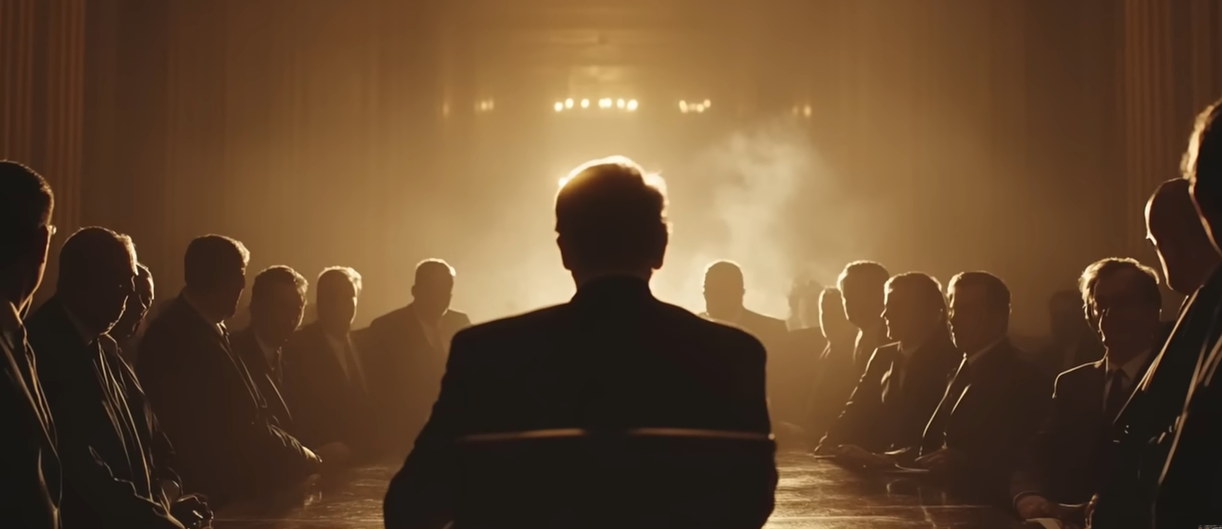The prison-industrial complex – or PIC – may sound like a relatively innocuous term. It is generally defined as “the rapid expansion of the U.S. inmate population due to the political influence of private prison companies and businesses that supply goods and services to government prison agencies.
But PIC is much more systemic, pervasive, and disturbing than that. By any reasonable measure, the prison-industrial complex in America is out of control. I have issues with this so-called cottage industry, and so should you.
What would be a proper soundtrack for our PIC problem in the United States? Elvis Presley’s “Jailhouse Rock?” Sam Cooke’s “Chain Gang?” How about Johnny Cash’s “Folsom Prison Blues?” You choose.
The United States of America has the highest incarceration rate in the world. We have more prisoners in jails and prisons right now than many countries have citizens. Marinate on that for a moment. Let it sink in.
There is something wrong when a state – any state – spends more on average to incarcerate an adult in a year than it spends to educate a child. There is something amiss when an individual who has paid his or her debt to society after committing a crime is released from prison only to quickly discover that he or she cannot vote in an election, cannot find gainful employment, and cannot secure a place to call home.
There is something off when people who are court-ordered into probation somehow find themselves paying private probation companies a monthly amount which exceeds their car note or the rent for their apartment – fully aware that their inability to pay that monthly probation ransom will result in the revocation of their probationary status and re-entry into jail or prison.
There is something rotten going on when states are closing existing schools while simultaneously building brand new prisons – whether they are truly needed or not.
When state governments and the federal government oversaw the prison system, the goal for prisoners was rehabilitation. However, when private for-profit corporations were contracted to oversee the prison system, the goal as it relates to prisoners quickly became about remuneration. These companies and corporations make it plain. They are in it to get paid. And get paid they do.
I have serious issues with these developments.
Drug addiction, homelessness, illiteracy, mental illness, and unemployment are all examples of societal issues every industrialized nation struggles with. Imprisoning the people who suffer from these adverse conditions is not only short-sighted, it’s also dangerous. Who is best equipped to deal with these matters?
Is it the elected officials on the local, state, and federal levels of government who can write legislation – or the prison industry lobbyists, the sympathetic super-PACs, and the Board of Directors for private prison companies?
According to a recent issue of “Rolling Stone” magazine, a key component of the prison-industrial complex is what sociologist Victor Rios has called the “youth control complex.”
According to Mr. Rios, the youth control complex is “a tightly bundled network of institutions that work insidiously and in harmony to criminalize young people of color.”
You might dismiss Mr. Rios’s assertion as mere speculation until you consider that up to this moment, someone convicted of selling illegal drugs can expect far more prison time than someone convicted of murder. Longer mandatory sentences mean more profits for private prisons.
Overcrowded prison conditions mean demands by state governments for new, bigger prisons. Those politicians who are traditionally tough on crime may realistically find themselves actively being courted by representatives of private prison corporations for partnership opportunities. Such partnerships between elected officials and for-profit prison corporations are undoubtedly slippery slopes.
Are you aware of the partnership opportunities already in place between American colleges/universities and for-profit prison corporations? The two largest private prison owner and operator companies in the U.S. are Corrections Corporation of America (CCA) and GEO Group.
An increasing number of colleges – including Ivy-League schools like Columbia University – have invested significant endowment dollars in CCA and GEO Group. Investment banking giants such as Goldman Sachs, JP Morgan Chase, and Wells Fargo are heavily invested in CCA and GEO Group stock shares.
The CEOs of these banks deemed “too big to fail” also serve on the boards of prestigious universities like Columbia and Stanford. Do you wonder why no one breathes the phrase prison reform? There’s too money for that.
In 2014, anyone who has a criminal record need not apply for college. You won’t be accepted. That’s no accident.
The prison-industrial complex forces prisoners to create goods – from furniture to license plates – which are then marketed and sold to the public for a profit. The state gets paid. The private prison gets paid. The prisoner gets paid cents per hour.
There’s a term which applies here: indentured servitude.
I have problems with all these complex issues. So should you.








